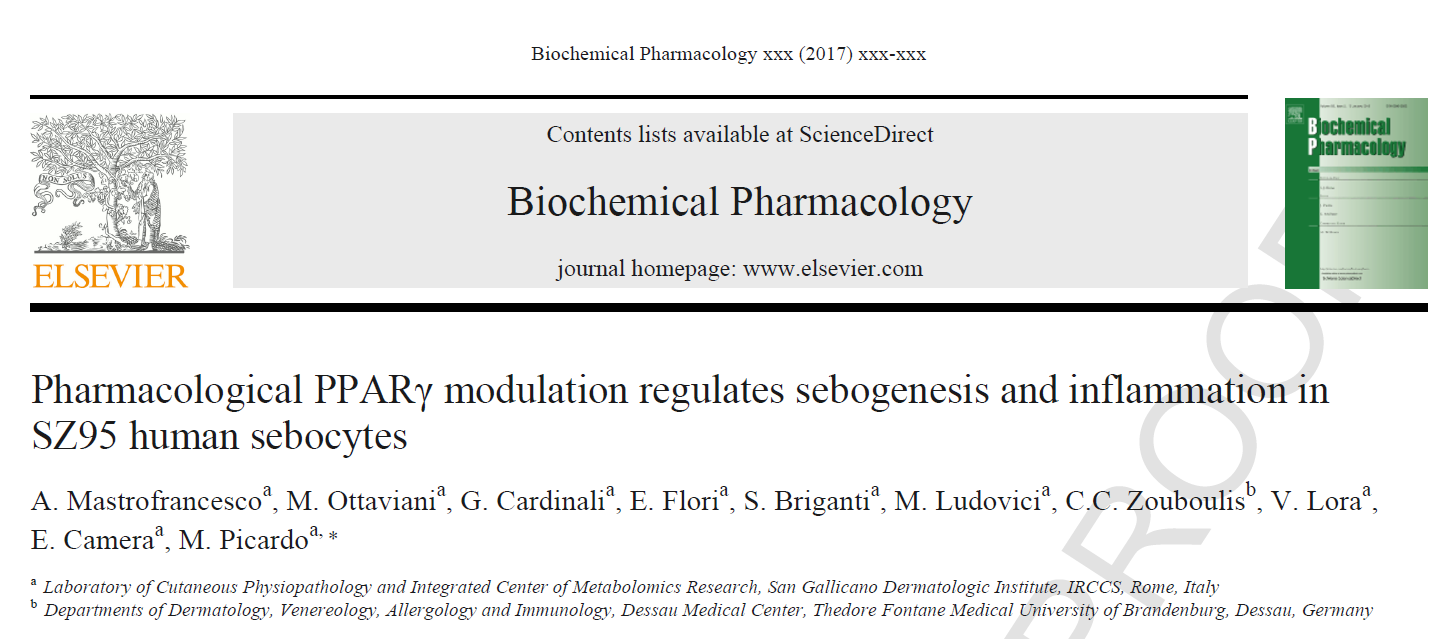Nogra Pharma is available to give comprehensive Project presentations, provide additional Project specific details or confidential information and discuss potential collaborations or out-licensing opportunities with interested companies.

Abstract
The nuclear receptor peroxisome proliferator-activated receptor gamma (PPARγ) controls the expression of genes involved in the regulation of lipid and glucose metabolism, cell proliferation/differentiation as well as inflammatory pathways. Pivotal studies in human sebocytes and isolated sebaceous glands have raised the interesting possibility that compounds acting on PPARγ can modulate sebaceous lipids and inflammation and, as such, may be useful in the treatment of acne. To investigate the role of this receptor in the regulation of lipid synthesis, proliferation and inflammation, we used the SZ95 sebaceous gland cell line stimulated with insulin. In sebocytes, insulin signaling activated the phosphatidylinositide 3-kinase-Akt (PI3K/Akt) and mammalian target of rapamycin (mTOR) pathways, which, in turn, induced high protein/lipid synthesis, increased cell growth and proliferation as well as inflammation. As regards lipogenesis, insulin initially stimulated the formation of unsaturated lipids and then the neosynthesis of lipids. The results showed, that the modulation of PPARγ, counteracted the insulin-induced altered lipogenesis, evident through a decrease in gene expression of key enzymes responsible for the synthesis of fatty acids, and through a reduction of lipid species synthesis analyzed by Oil/Nile Red staining and GC–MS. PPARγ modulation also regulated the insulin-induced proliferation, inhibiting the cell cycle progression and p21WAF1/CIP1 (p21) protein reduction. Moreover, the expression of inflammatory cytokines, induced by insulin or lipopolysaccharide (LPS), was down-modulated. In PPARγ-deficient cells or in the presence of GW9662 antagonist, all these observed effects were abolished, indicating that PPARγ activation plays a role in regulating alteration of lipogenesis, cell proliferation and inflammatory signaling. We demonstrated that selective modulation of PPARγ activity is likely to represent a therapeutic strategy for the treatment of acne.
